Akila Peiris
SHADE: Semantic Hypernym Annotator for Domain-specific Entities -- DnD Domain Use Case
Jun 29, 2024


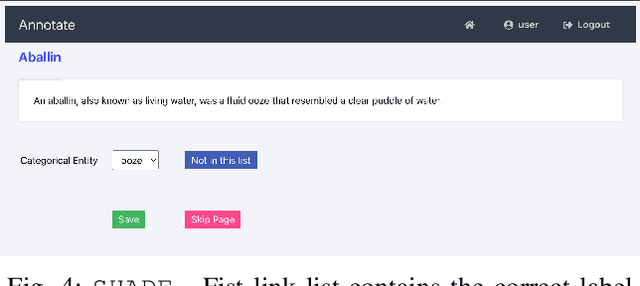
Abstract:Manual data annotation is an important NLP task but one that takes considerable amount of resources and effort. In spite of the costs, labeling and categorizing entities is essential for NLP tasks such as semantic evaluation. Even though annotation can be done by non-experts in most cases, due to the fact that this requires human labor, the process is costly. Another major challenge encountered in data annotation is maintaining the annotation consistency. Annotation efforts are typically carried out by teams of multiple annotators. The annotations need to maintain the consistency in relation to both the domain truth and annotation format while reducing human errors. Annotating a specialized domain that deviates significantly from the general domain, such as fantasy literature, will see a lot of human error and annotator disagreement. So it is vital that proper guidelines and error reduction mechanisms are enforced. One such way to enforce these constraints is using a specialized application. Such an app can ensure that the notations are consistent, and the labels can be pre-defined or restricted reducing the room for errors. In this paper, we present SHADE, an annotation software that can be used to annotate entities in the high fantasy literature domain. Specifically in Dungeons and Dragons lore extracted from the Forgotten Realms Fandom Wiki.
Synthesis and Evaluation of a Domain-specific Large Data Set for Dungeons & Dragons
Dec 18, 2022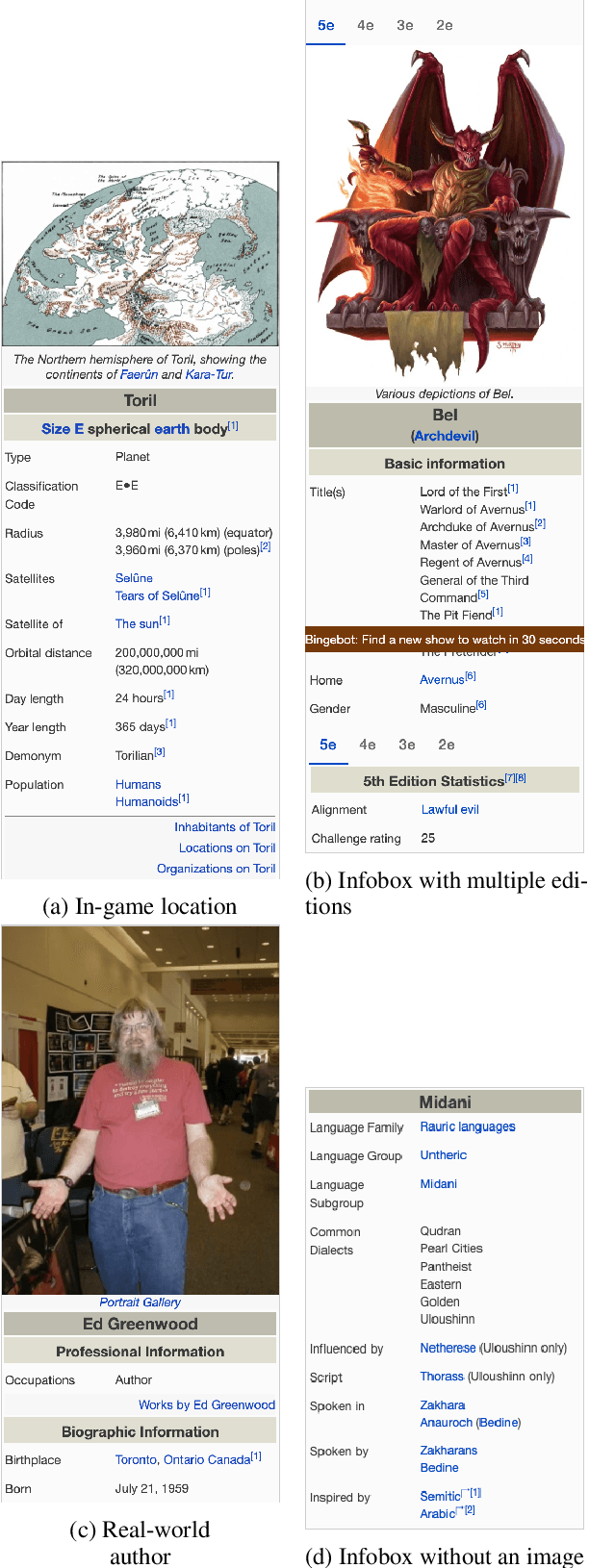
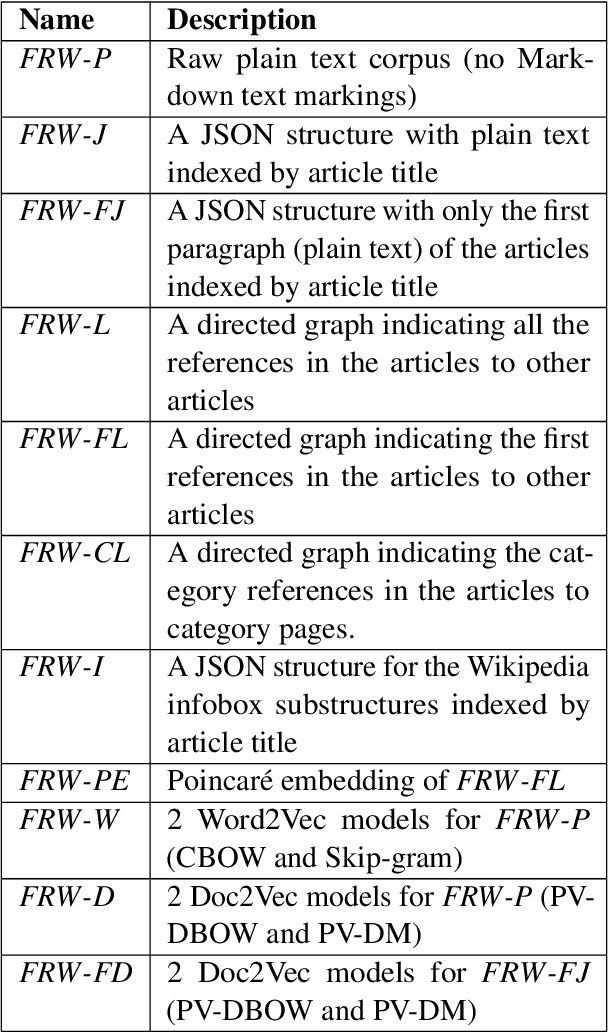
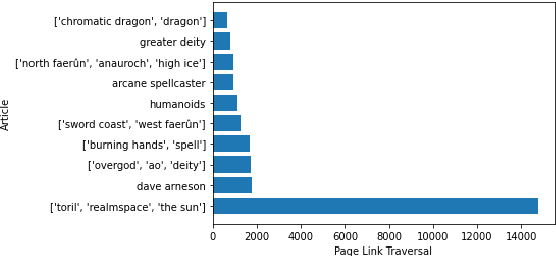
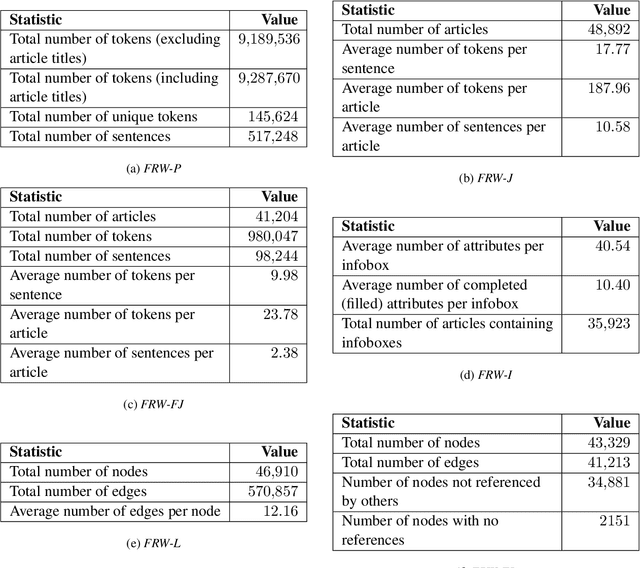
Abstract:This paper introduces the Forgotten Realms Wiki (FRW) data set and domain specific natural language generation using FRW along with related analyses. Forgotten Realms is the de-facto default setting of the popular open ended tabletop fantasy role playing game, Dungeons & Dragons. The data set was extracted from the Forgotten Realms Fandom wiki consisting of more than over 45,200 articles. The FRW data set is constituted of 11 sub-data sets in a number of formats: raw plain text, plain text annotated by article title, directed link graphs, wiki info-boxes annotated by the wiki article title, Poincar\'e embedding of first link graph, multiple Word2Vec and Doc2Vec models of the corpus. This is the first data set of this size for the Dungeons & Dragons domain. We then present a pairwise similarity comparison benchmark which utilizes similarity measures. In addition, we perform D&D domain specific natural language generation using the corpus and evaluate the named entity classification with respect to the lore of Forgotten Realms.
 Add to Chrome
Add to Chrome Add to Firefox
Add to Firefox Add to Edge
Add to Edge